 If you spend any time on the internet for fun, you probably saw the meme that sprang up overnight about the young Target bagboy named Alex. This is something of an ongoing story, but I'll try and hit the main points. Basically, the story started off with a regular person to person interaction where someone took a picture of their bagboy and posted it to Twitter. The internet thought he was cute, and it went viral. Recently, however, there have been allegations that this was a conspiracy by Target to self promote. Other tech companies are also clamoring to take responsibility for the sensation claiming it was an intentional social experiment to test the ability of the tween market to generate a buzz. Whatever the case, this should remind everyone to keep tight reins on their social media. If this was intentional, it was extremely successful and well done, if not, it was a close shave. Target responded very quickly about how they "heart Alex, too" and they gained a lot of publicity from the memes that sprung up around him. If they're smart (which they are), they will see how this could be extended into the future. It wouldn't be hard to keep this publicity going a little longer, or even generate similar results in the future.
2 Comments
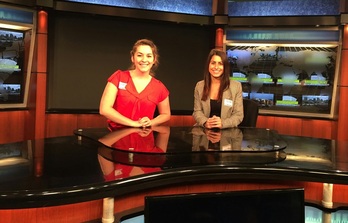 I make a convincing newsperson, right? I make a convincing newsperson, right? Just a heads up, today's post is going to be a little different than usual. I visited the WESH 2 News Station over in Winter Park today and I wanted to share my experience with you all. It was a cold and windy night on the eve before Halloween...... Okay, so maybe that's not the best start. It was about noon in Florida, probably hovering at 75-80 degrees. It's been a bright, beautiful day, and even traffic hasn't been that bad. It is the day before Halloween though, so there's that. I went to WESH 2 earlier for a private tour around the station with a group of classmates and a professor of mine and had the best time. I learned a lot about the history of the station and its channels, especially the creation of the 8 year old CW18 channel. I was able to sit in on a live broadcast with Meredith Imperato and Jason Guy and see a weather report by Jason Brewer. I am truly so excited to have met them all; the reporters and the staff alike were all extremely friendly and had nothing but positive things to say about WESH. I am glad I got the opportunity to go and will definitely be visiting again. But until then, I have lots of pictures.
Exponential Growth Because this term is so often misused, you'll forgive me for putting it into context as well. Exponential growth does not just mean something is big. Exponential grow is almost unfathomable to people who don't work with numbers. A quick example, 10 times 10 is 100. It creates a much larger number than you started out with and it yields a 900% increase, very large by most metrics. On the other hand, 10 raised to the 10th exponent is 10,000,000,000. For anyone who doesn't feel like counting those zeros, that's 10 billion, a 99,999,999,900% increase. The increases yielded by exponents are almost laughable and it implies growth that is practically unstoppable. Now, back to data. An exponential increase in the amount of data available for analysis is extremely significant. It is safe to assume that all internet traffic generates data. The amount of time you spend online, any website you visit, any browser you use, any searches you perform, and any links you click are all turned into numbers that describe you as a person, and for businesses, you as a consumer. This allows researchers to draw all sorts of conclusions about your skills, interests, and behaviors. Every action you take online defines you and the shear amount of actions you take creates an exponentially larger profile. Structured and Unstructured So what does this mean? It means a lot of the aforementioned data that is collected is not connected to anything and is not organized in a usable way. One of the key tenets of market research, for example, is to only collect data after determining your end goal. In other words, you collect for a purpose: to give specific answers to specific questions. Big data does not always do this. Often times, it simply collects and stores mass amounts of data with which no conclusions can be drawn because the information was not collected in a structured manner. However, there is still a sizable amount of data that is valuable to the collector even if there was no original purpose. What's the point? Ultimately, the goal is to create meaning out of a tangled web of information, and then apply it. Used correctly, it's a big asset for businesses. However, many businesses do not take the time to appropriately collect and interpret this mass of information. Resources are invested to obtain large stores of data, and then it sits. Fortunately for researchers, many more businesses have figured out ways of using this data to create better customer interactions. Predicting purchases, for example, so that when an individual finally initiates the transaction, the experience has already been optimized for ease and simplicity. As long as analysts are responsible with individuals' privacy and uphold their confidentiality, there is no reason this latest advancement in information analytics can't benefit everyone. A brief word of caution: if the necessary care is not taken to keep collected data separate from the individuals from which it comes, there could be serious ethical implications. Individuals' right to privacy must be respected above all. Sources:
http://www.sas.com/en_us/insights/big-data/what-is-big-data.html For some reason, there are still a lot of companies who choose not to take mobile marketing and mobile optimization seriously in their digital media strategies. For the life of me, I can not figure out why. Most people spend the majority of their time away from home, and thus, away from their computers. Therefore, much of their browsing and shopping also take place away from home. I saw an interesting article on Forbes the other day that claimed nearly 90% of our digital transactions do not end on the same device they began on. With the current technological environment, consumers can search for an idea on their tablet, save it for later to get more details on their computer, then finally purchase it on their phone after they've thought about it and had time to make a decision. Not taking these cross platform usage patterns into account when designing a website and device optimization is extremely short sighted.
I feel like at this point I should also mention that I have been been writing and will finish this post on my tablet; I am constantly using mobile technology. I can also say for certain, if I were looking for a product or service right now, anything without a mobile presence (in other words, didn't show up in mobile searches immediately) wouldn't get a second chance. That business would be automatically out of the running because there were other businesses who took the time to make sure they could be found on the go and made their site interactive enough to be useful to me as the consumer. Patience runs thin when people are looking for something in a hurry. Better to be the "perfect, just what I needed" company rather than the "I'd really rather not try and figure out their mobile website" company. Mobile media is one of the fastest growing digital segments, it's important to cater to your consumers instead of asking them to cater to you. 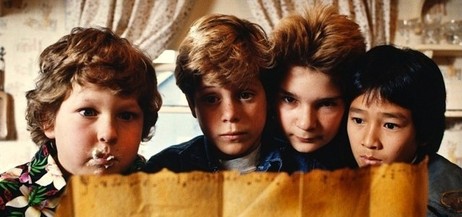 Anyone who watches movies religiously like I do knows one of the biggest truths in the movie world is "remakes happen." For good or bad, they happen a lot. New takes on old films generates interest in people who weren't around the first time the movie came was popular, or even just weren't part of the right demographic. With new generations comes new opportunities and chances to appeal to new audiences. The industry seems to be especially interested in old 80's movies right now. Have you noticed? From cute kids' movies like Annie to all time 80's classics like The Goonies, Godzilla, and Robocop, studios seem keen to capitalize on the nostalgia craze that's been so widespread lately. Why? Well, I already mentioned nostalgia, and that's probably the biggest aspect. When people get older they want to be reminded of things when they were young. For example, the new Teenage Mutant Ninja Turtles (regardless of your opinions on Michael Bay) was really successful. According to BoxOfficeMojo.com, they ranked number 4 in all-time opening box office weekends for August. Another reason is because people who liked the original are probably still going to spend the money to go see a remake even if it doesn't look promising. There's not really any word yet on how The Goonies process is going, but even if it the trailer doesn't sell me like it should, I'm still going to go see it. It's The Goonies. In any carnation, it's something I grew up with. I'll just spend my time until then hoping they really put the work into making it amazing. What else can we do? What to Expect With the much anticipated remodel of Downtown Disney into Disney Springs, many people are wondering just what to expect from Walt Disney World's latest project. Downtown Disney has been a staple of Orlando life for what feels like ever and the overhaul is going to affect not only the tourism industry, but day to day life for many Orlando residents as well. Since it's opening in 1975, Downtown Disney has remained predominantly unchanged. Some shops and experiences has come and gone with the times, but the core experience is remarkably similar to what it was almost 40 years ago. Below is a picture of Downtown Disney before the redesign. So why the sudden change of heart? For quite awhile, Downtown Disney has been receiving negative reviews about the current experience. Choruses of "not enough for the kids" and "too commercial" have been hanging around this destination for years. Additionally, this area has been divided into three somewhat disjointed sections: The West Side, The Marketplace, and Pleasure Island. Disney Springs plans to create a more cohesive experience. The new location will keep The Marketplace and West Side with new locations The Town Center and The Landing replacing Pleasure Island. None of the sites will make it through the process completely untouched and the area will soon be what Disney is calling "a timeless and vibrant place that celebrates the turn-of-the century lakeside town." Keeping with that description, the unifying theme will be more of a waterfront town rich with scenery, shops, and entertainment. This design should cater much more to families and address complaints of commercialism by with its warm and rustic feel. Below is the anticipated layout to be completed in 2016. What does this mean for marketing? For starters, you should know that people haven't exactly been thrilled with the construction process. Disney has kept Downtown open while they transition and reviewers have done nothing but tear them down since it started. "The main road leading to downtown Disney was a nightmare. The road as well as Downtown Disney are under-construction leaving travelers confused on where to park. Once you finally figure out parking you are then treated to another maze of barricades lining the walkways." -Lauren S, tripadvisor.com Considering the project is expected to last for another two years minimum, Disney's going to need to save some serious face when this is all over. People go to Disney for the experience and when any part of that is tainted, it's bad for the brand. Additionally, they'll need to notify people when it's all over. Two reasons why. One: People who have been inconvenienced by the construction need to know they don't have to deal with it anymore and Two: People who weren't crazy about Downtown Disney before need to know it's a totally new experience now.
Anyone who wants to keep up with this story should visit Disney's blog over at disneyparks.disney.go.com/blog. They post Disney Springs updates kind of irregularly at the moment, but as we get closer to 2016 and that completion date, I expect you'll see a lot more information coming through. 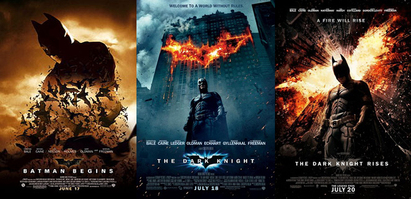 Unless you've been asleep since 2000, you probably already know that superhero movies have been getting progressively more popular over the past decade. The start of this craze can trace its roots back to the X-Men and Spiderman movie franchises of the early 2000's. Because of these two, people started paying a lot more attention to, and even became eager for superheroes in their stories. Then, in 2008, both Iron Man and The Dark Knight came out and heroes completely took off. Marvel and DC have since been aggressively recruiting new fans and exciting the old fans. Marvel has almost certainly been more successful with their movies (at the very least in quantity, though I'd argue quality as well). They've had blockbusters like The Avengers and Guardians of the Galaxy along with numerous individual hero stories. DC, on the other hand, has released a lot fewer movies and have been gradually building up their television base. For example, their new show Gotham has been getting great reviews since its premiere earlier this week. A lot of people aren't really sure why these concepts have been so successful, but I think there are a few reasons. Nerdy isn't really nerdy anymore. First and foremost, movies like this hitting the mainstream is kind of a huge deal. Even looking away from heroes, science fiction and fantasy have been getting more and more popular among regular people. And keep in mind this was before studios even remembered comic book heroes. Take as an example Lord of the Rings, The Hobbit, Harry Potter, and the Star Trek reboots. As "nerd culture" has become more mainstream, no one is embarrassed to talk about movies that wouldn't have been cool twenty or thirty years ago. These movies are really awesome. And I mean this in the most adult, sophisticated way possible. Superheroes are really, really cool. Everyone kind of wants to be able to do the things they do and be the kind of people they are. These characters are essentially Human 2.0, the new model. People always want to be more and do more so seeing people fly, or fight, or have amazing gadgets is something we can't help but be jealous of. Additionally, many of these characters are practically morally incorruptible. They are principled people who make the right decision even when it's hard and show us the best of what we can be. Even if we can’t fly, there's no reason we can't try to embody the integrity they represent. They appeal to everyone. When your target audience is all four key demographics, (Old Women, Young Women, Old Men, and Young Men) it’s pretty obvious that you’ll do better than movies that exclude audiences from the outset. Superhero stories usually offer a good vs evil struggle that engages all kinds of people. With Marvel especially, (who tends to stay away from gritty violence) these are things that even children can enjoy. Heroes have always had a place in my heart, so I'm glad that they've become popular enough to warrant big budgets and great quality. Clearly they're not going anywhere for awhile. As someone still exploring all the different areas of marketing, it's always really exciting to get the opportunity to get to hear someone pitch why they think their field is the best. The biggest reason for this is obvious: who is in a better position to talk about something than the person who gets to do it everyday? Listening to a marketer, or anyone for that matter, talk about something they love is indescribably more interesting than listening to someone who works for the sole purpose of leaving at the end of the day. This is why I want to talk about content marketing. Two amazing staff members from Purple Moon Media in Orlando were guest speakers in a class of mine a few days ago. They got to talking about their area of expertise, content marketing. Guest speakers are always really interesting, and I always take some useful information away, but this presentation really made me think about the goals and methods of marketing in general. Content marketing focuses on creating interesting and useful content for the public to consume and share, thereby driving digital traffic. This kind of marketing really gets my vote for a couple of reasons. First and foremost, it works. I can't think of a better way to make someone interested in something than by treating them like the educated consumer they are and just talking about the product and its features. When you have knowledgeable buyers, you sell more. The other thing I really like is that it's not as disingenuous as a lot of marketing. I see a lot of strategies focused on the quick sell at the expense of the consumers and it makes me extremely uncomfortable. Content marketing takes a different approach; it creates long term success by actually creating something valuable for people that they can share. It drives online traffic because it's exactly what people want to use the internet for, sharing ideas. 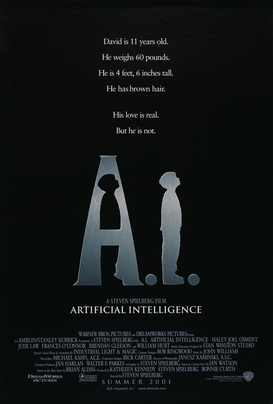 When it comes to marketing for movies, thoughtful and creative campaigns have always been the best way to raise public awareness and engage the public. In the past, brilliant campaigns like the unprecedented strategy used by The Blair Witch Project used the early internet, coupled with other mediums, to spread rumors like wildfire and incite interest in the mythology behind the movie. A testament to a committed marketing staff, The Blair Witch staff convinced audiences nationwide that the film told the true story of real people’s lives. A few years later, A.I. Artificial Intelligence began marketing for their movie release in 2001. They also saw the internet’s potential for building excitement. A perfect storm of several brilliant ideas, they brought awareness for the movie from a small base of interested parties to a much larger audience. They created a national (and in certain cases worldwide) buzz before “going viral” was an understood phenomenon. A.I.'s strategy was, essentially, an interactive game to involve movie goers. Many promotional posters featured websites, emails, and phone numbers with riddles encouraging communication to solve the riddle. There were multiple trailers that implied puzzles and riddles and dared the audience to solve them. Going with the theme of the movie, it implied that some sort of computer had come alive and was communicating. The game only concluded upon seeing the movie. This was an extremely creative and massively successful promotion strategy that many marketers today could use as an example. The internet is more interactive than ever, and with a little innovation, an even more brilliant campaign could keep people talking for a long time. Jump forward to January of 2014, and Devil's Due was on its way into theaters. The promotional staff for this movie decided to build a noisy, animatronic baby doll that looked possessed and could be controlled remotely. Google the picture of "Devil Baby" at your own risk. The took this doll and put it in a stroller alone in NYC. When people approached, it would jump up and make noises. As terrifying as it was to a lot of people, this campaign spread a lot of awareness for what would otherwise have been a quickly forgotten film. Even though some people didn't appreciate the prank, there was mostly positive coverage on several news sources. Movements like these challenge the status quo and push people in the entertainment industry to come up with new ideas. When this happens, it not only generates current interest for whatever you're promoting, but also makes lasting memories for the people who come into contact, and subsequently making a better overall industry. Positive hype and captivated audiences has only ever been a good thing, so we should be trying to create more of it instead of falling back on old tricks. If everyone can agree to be honest for a second, I think we need to have an candid discussion about marketing as a profession. There have always been services that the public dislikes, but being in marketing, media, and advertising, I tend to hear all about it. Meeting new people usually comes with the standard icebreakers, "What do you do for a living?" or "What do you study in school?" I like to say that responding is like getting sushi from a gas station: I'm not positive it's going to go poorly, but I'm not optimistic.
In almost all developed countries, as well as several underdeveloped ones, entertainment and its publicity are things that regularly touch people's lives, usually multiple times a day. Simply being bitter about something so prevalent is a waste of both marketers' and the public's time. Instead, as marketing professionals our time would be better spent striving to make the industry something that's worth respecting. People already like entertainment; it allows them to pay for things to make them happy. It shouldn't be so unbelievable that we could bring people around to respecting the entertainment marketing profession as well. Because of its expansive reach and almost impossibly wide scope, entertainment has the capacity to have a powerful and extremely positive impact on the world. When you approach media and advertising from a place of optimism and positivity, it creates better work and can make unfamiliar territory a little more sympathetic for the average person. Not to imply sympathy is a goal in itself, but no one wants to feel manipulated or used after paying for an experience. People do, however, want to be part of something bigger than themselves, be it a movement, culture, or experience. By marketing to the human side of people and showing them how entertainment makes the world a better place, we can reverse the stigma associated with marketing and advertising and create respect where there hasn't been any for a long time. I truly believe it's worth making the effort. I know I can't be the only one who doesn't want to justify what I do for a living for the rest of my life. |
Alexis Jett
Marketing and statistics student at the University of Central Florida, Orlando. Archives |

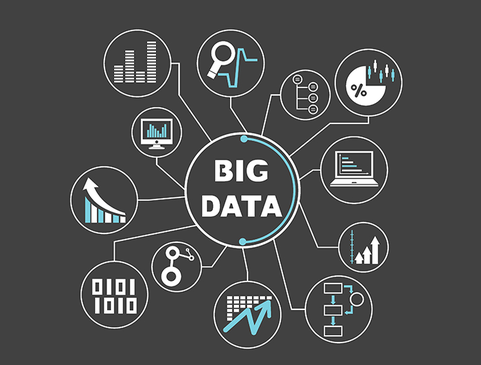


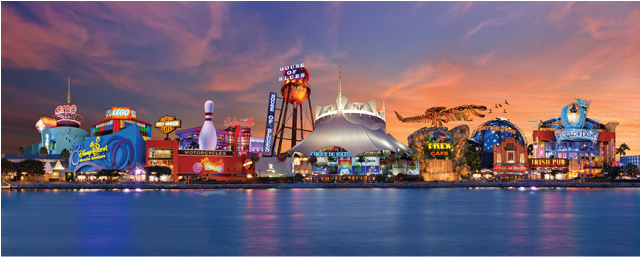
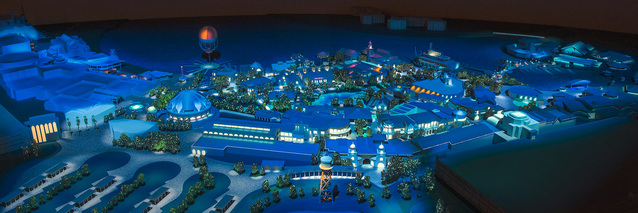
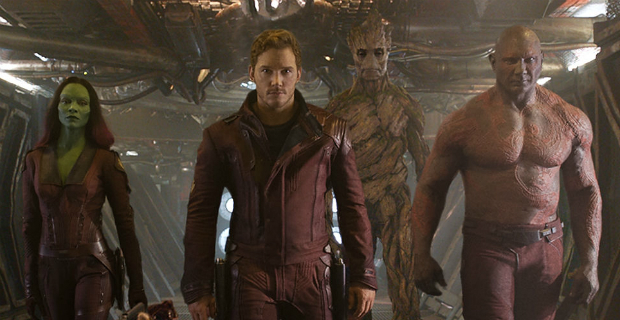
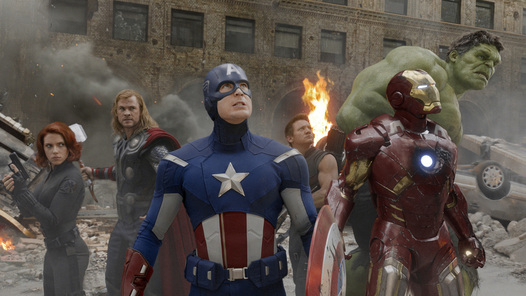
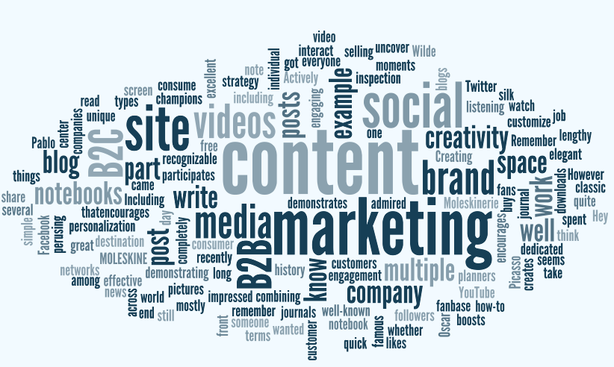
 RSS Feed
RSS Feed
